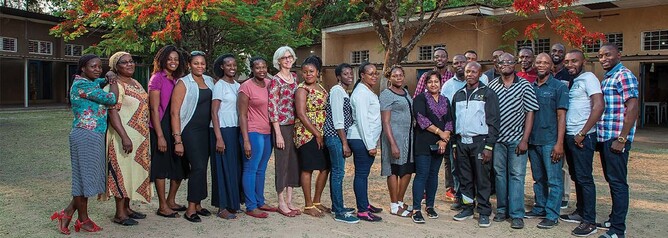Today I visited a new Christian school in Lubumbashi. Funded by Australians, this venture has the vision to provide quality French education from Pre-Kindergarten to Grade 12. We chatted over broad issues and, since I am now in my fourth year of administering a different Christian school, I realised how much I have learnt in that time.
As my friends were showing me the top floor of the new Primary school building site, we could see down over the wall of the property onto the neighbouring area that the school has recently bought for a playing field. On that plot is a freshly burnt brick kiln, also belonging to the school. Some women with a wheelbarrow, were helping themselves to bricks, oblivious to the fact that their stealing was happening in plain view of the owners. I did not envy my friend his administrative duty at that moment, but I did envy him the chance to be building a Christian school from the bottom up.
Coming into an organisation and seeing the need to develop staff and strategies, where strong characters and customs are already entrenched, is the challenge I have been facing these past four years. The English-speaking School of Lubumbashi (TESOL) was the first English-medium school in this the second biggest city of DR Congo where French and Swahili are the official and common languages.
Under the umbrella of a protestant community, TESOL has always been a ‘Christian’ school. However, developing the school to be a true Christian community has the potential to create a powerful ripple effect, impacting the lives of children who should be key players in this local community. There is even possibility to affect the whole country and region, because these children could be future leaders in businesses and government.
Most TESOL students are already multi-lingual. Like many of Africa’s educated youth, they are compassionate towards those less fortunate than themselves and capable of crossing cultural divides that are so difficult for such as I, even after all my years living cross-racially. They can fit into different social settings easily and are not fazed by the harsh realities of African life.
When I travelled to Australia for three weeks in December 2018, an apparent reality that many young people are facing there mystified me: anxiety. It appears from the news that this is a widespread phenomenon in the western world.
I do not sense that here amongst our youth.
So, you have a school with the opportunity to grow future leaders, and the kids you work with exhibit confidence and strength of character: what would you teach them? How would you want to mould their experiences? By what means could you draw them to see themselves as required to serve, not just be entitled to self-indulgence?
This is my daily challenge. Pray that I can find people and ways to help TESOL become a community that will develop young people to be in a right relationship with God and with service as their heartbeat.
Bethany Kapezya, D R Congo


